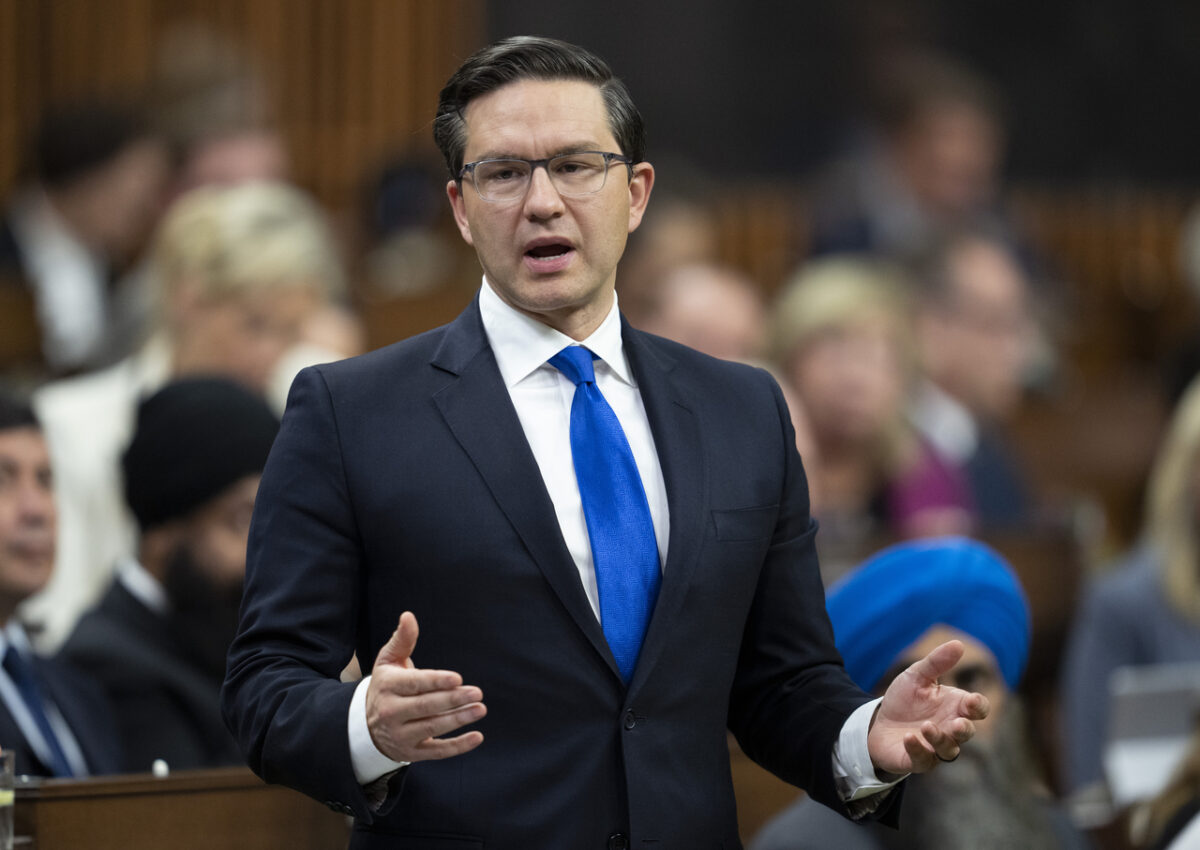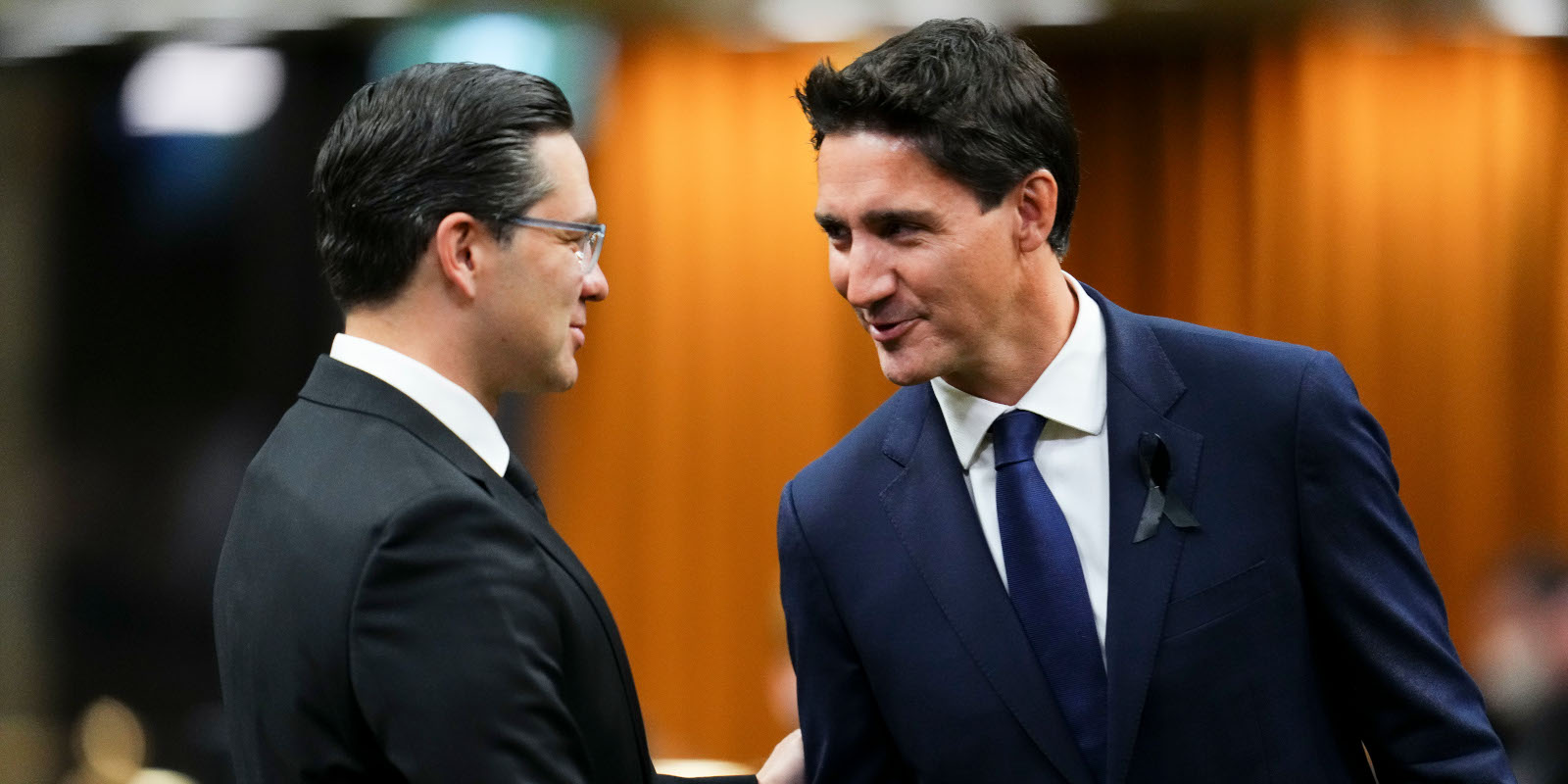Poilievre says House should be recalled as NDP vows to vote down the motion. This high-stakes political showdown pits the Conservative leader’s call for an immediate parliamentary recall against the NDP’s firm opposition. The clash highlights deep divisions over the government’s handling of [insert key issue here – e.g., economic policies, a specific scandal, etc.], and its potential impact on the upcoming [election/budget/etc.].
So, Poilievre’s pushing for a House recall, but the NDP are planning to shoot it down. It’s a political hockey match, really, and reminds me of that game where, check this out, Sabres have goal called back vs. Maple Leafs, handed high-sticking – a total game-changer! Just like this vote could be a game-changer for Poilievre’s political strategy.
The upcoming vote promises to be a significant test of political strength and could reshape the Canadian political landscape.
Poilievre’s demand is fueled by [briefly state his main reasons – e.g., alleged government inaction, a need for accountability, etc.]. He argues that a recall is crucial to address [reiterate the key issue] and restore public trust. The NDP, however, counters that a recall is unnecessary and a political stunt, citing [briefly state NDP’s counterarguments – e.g., the existing parliamentary process is sufficient, the timing is inappropriate, etc.].
The consequences of the NDP’s vote could range from a continued political stalemate to a potential shift in public opinion.
Poilievre’s Call for a Parliamentary Recall and the NDP’s Response: Poilievre Says House Should Be Recalled As NDP Vows To Vote Down
Pierre Poilievre’s recent demand for a parliamentary recall, met with the NDP’s vow to vote it down, has ignited a significant political firestorm. This situation highlights key differences in political strategies and priorities, with significant implications for the Canadian political landscape.
Poilievre’s Call for Recalling Parliament
Poilievre’s demand for a parliamentary recall stems from his belief that urgent matters require immediate attention from the House of Commons. He cites specific policy failures and the government’s perceived inaction as the primary reasons for his call. The timeline of events leading to this demand includes a series of controversial government decisions and public outcry, culminating in Poilievre’s public statement.
Specific reasons cited by Poilievre likely include concerns over rising inflation, the housing crisis, and the government’s handling of specific policy issues. A detailed breakdown of these concerns, with supporting evidence, would strengthen this analysis. The exact timeline needs to be populated with specific dates and events to provide a complete picture.
| Date | Reason for Recall | Outcome | Party Initiating Recall |
|---|---|---|---|
| Example: October 26, 2023 | Example: Government’s handling of inflation | Example: Recall unsuccessful | Conservative Party |
| Example: June 15, 2022 | Example: Controversy surrounding a specific bill | Example: Recall successful, leading to debate and amendments | Liberal Party |
| Example: March 8, 2021 | Example: Urgent response needed for a national crisis | Example: Recall successful, leading to emergency legislation | NDP |
| Example: December 2, 2020 | Example: Government’s response to a major scandal | Example: Recall failed, leading to a vote of non-confidence | Conservative Party |
NDP’s Stance and Intended Vote

The NDP has publicly declared its intention to vote against Poilievre’s call for a parliamentary recall. Their reasoning likely centers on their assessment of the urgency of the issues raised, and their confidence in the current government’s ability to handle the situation. The potential consequences of this vote could include increased political tension and potential damage to the NDP’s reputation.
A detailed explanation of the NDP’s reasoning, including specific policy arguments and considerations, is needed here. The potential consequences should be explored more thoroughly, including the possibility of a snap election or a shift in public opinion.
In a hypothetical scenario, the NDP could choose to abstain from the vote, which could create uncertainty and potentially allow the recall to pass. Alternatively, they could offer a compromise, such as supporting a shortened parliamentary session to address specific concerns, potentially defusing the situation. Each scenario needs a more detailed analysis of potential outcomes.
Political Implications and Public Opinion

This political clash carries significant ramifications for both the Conservatives and the NDP. Key stakeholders include the Canadian public, various interest groups, and potentially even international observers. Public reaction will likely depend on the perceived urgency of the issues raised and the effectiveness of each party’s messaging.
A comparison with past political events, detailing public reactions and outcomes, would enhance this section. The short-term consequences could include shifts in public opinion and media coverage, while long-term consequences might include changes in electoral support or policy adjustments. Specific examples of similar political events and their outcomes are necessary for a robust comparison.
- Short-term consequences: Increased political polarization, shifts in public opinion polls, intensified media scrutiny.
- Long-term consequences: Changes in government policy, shifts in electoral support for both parties, potential changes in parliamentary procedures.
Parliamentary Procedures and Rules, Poilievre says House should be recalled as NDP vows to vote down
The process of recalling Parliament involves a series of formal steps and procedures governed by specific rules and regulations. These procedures dictate the timing and requirements for initiating a recall, influencing the likelihood of success. The complexity of these procedures can impact the speed and efficiency of responding to urgent matters.
A detailed explanation of the parliamentary procedures, including the specific rules and regulations, is required here. The impact of these procedures on the timing and success of Poilievre’s request should be analyzed, taking into account potential delays or procedural hurdles.
- Step 1: A formal request for recall is submitted by a designated party.
- Step 2: The request is reviewed by the Speaker of the House.
- Step 3: A vote is held in the House of Commons to determine whether to recall Parliament.
- Step 4: If the vote is successful, Parliament is recalled according to the established schedule.
Alternative Scenarios and Potential Compromises

Several alternative scenarios could unfold from this political standoff. Compromise is possible, with potential benefits and drawbacks for each party. A visual representation, using descriptive text, could illustrate the various potential outcomes.
- Scenario 1: The NDP votes against the recall, leading to increased political tension and potential damage to the NDP’s reputation. The visual representation would show diverging paths, one leading to a stalemate, the other to increased political conflict.
- Scenario 2: The NDP abstains from the vote, creating uncertainty and potentially allowing the recall to pass. This would be visualized as a branching path, showing the possibility of both success and failure for the recall.
- Scenario 3: A compromise is reached, perhaps involving a shortened parliamentary session to address specific concerns. This scenario would be depicted as a converging path, showing both parties reaching a common goal.
The political battle over Poilievre’s call for a parliamentary recall reveals a fundamental disagreement over how to address pressing national concerns. The NDP’s decision to vote down the motion underscores the deep divisions within Canadian politics, and the outcome will undoubtedly shape the coming months, influencing public perception of both the Conservatives and the NDP. The coming days will be crucial in gauging public reaction and observing how the parties navigate this political challenge.
So, Poilievre’s pushing for a House recall, but the NDP are planning to shoot it down. It’s a pretty intense political showdown, but hey, while all that’s happening, check out this awesome news: Paul McCartney reunited with Ringo Starr during a London tour stop ! That’s a much more cheerful bit of news compared to the political drama unfolding back in Canada.
Back to the recall, it’ll be interesting to see how this plays out.
The potential for compromise remains, but the current political climate suggests a protracted and potentially volatile period ahead.
Detailed FAQs
What are the specific parliamentary procedures involved in recalling Parliament?
The process involves a formal motion, debate, and a vote in the House of Commons. Specific rules and timelines are Artikeld in parliamentary standing orders.
What are the potential long-term consequences of this political clash?
Potential long-term consequences include shifts in public opinion, changes in party strategies, and potential impacts on future legislation and policy-making.
What previous instances of parliamentary recalls are comparable to this situation?
Researching past recalls, noting the reasons, outcomes, and initiating parties, will provide valuable context. This research should highlight similarities and differences to Poilievre’s current request.
Could a compromise be reached between the Conservatives and the NDP?
While unlikely given the current stances, potential compromises could involve a modified approach to addressing the key issue, perhaps through committee hearings or alternative investigative processes.